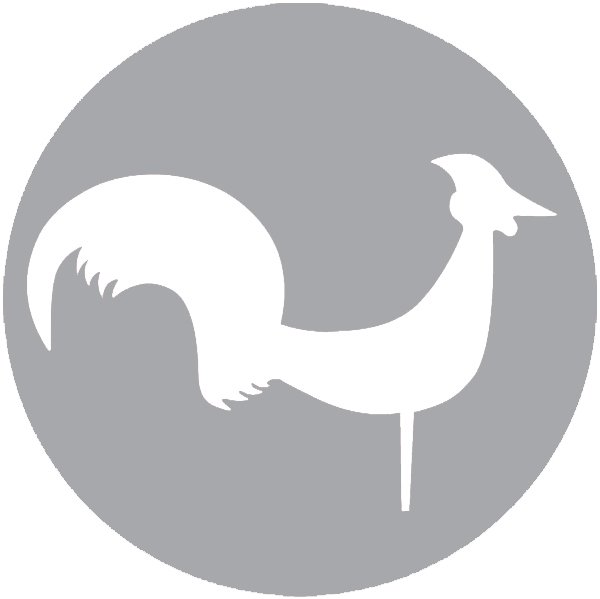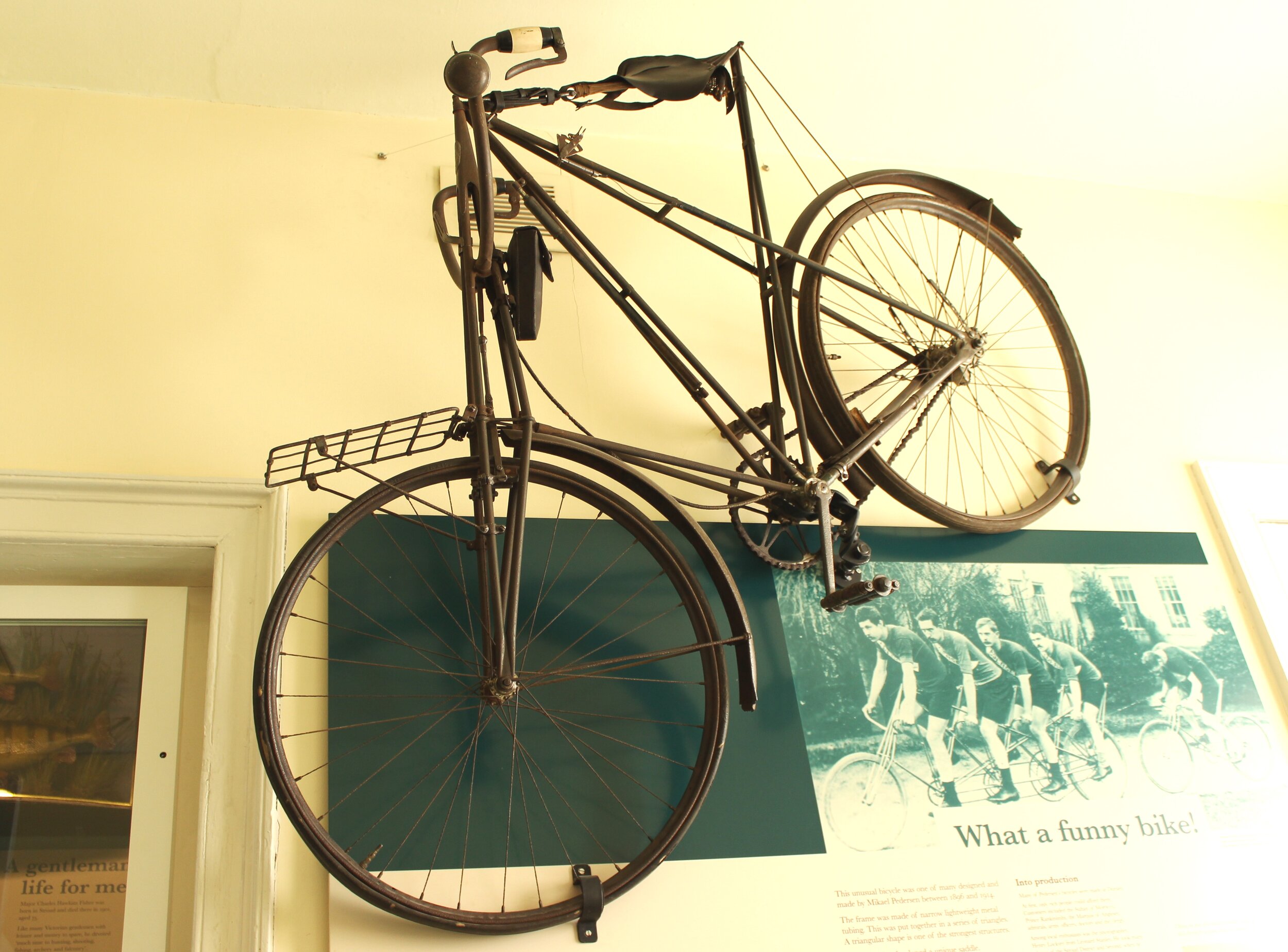The Road Less Travelled
/This Pedersen bicycle dates from circa 1900, a time when the motor car was a luxury item mostly used for leisure. Cycling at this time was growing in popularity providing everyday people with an affordable form of private travel for the first time. The Pedersen however was something different, its design consisted of 21 triangles, making it stronger and lighter design than similar bicycles. It was designed by Mikael Pedersen of Denmark who moved to Dursley in 1893. At the height of its success the Dursley Pedersen Cycle Company employed 50 people who produced over 30 bicycles a week. But the Pedersen proved too expensive for everyday people costing about 9 times the average monthly wage of a rural worker. Production stopped in Dursley in 1917.
1976.172
Nonetheless cycling was a major form of transport for everyday people at the time. From 1869 to 1876 Stroud resident Alfred Luke Randell wrote a diary in which he often mentions making journeys by bicycle or foot. His first entry on New Year’s Day in 1869 describes getting the train to Kemble and then walking the 4 miles to Cirencester. In Cider With Rosie which starts in 1914, Laurie Lee conjures an image of a typical weekday morning in the Stroud valleys:
“This was the hour when walkers and bicyclists flowed down the long hills to Stroud, when hooters called through the morning dews and factories puffed out their plumes.”
This photograph shows working men lined up outside the Stroud Brewery’s Fountain Inn at Uplands in Stroud. It was taken by Henry Lockyer of Stonehouse who was working as a photographer between about 1905 and 1920.
2007.183/2437 Wilf Merrett collection
At the end of 1904 there were 23000 cars on Britain’s roads. Today there are 31.7 million cars, making up 82% of licensed vehicles. 22% of UK emissions of carbon dioxide come from road transport making it a major contributor to climate change. In addition, vehicles emit other air pollutants which impact on the health of people and wildlife. A growing desire for larger cars such as SUVs is increasing emissions as a large car emits about 85% more greenhouse gases per km than a small car. Plus cars are being used for shorter journeys. In England around 60% of 1-2 mile trips are being made by car rather than on foot.
Many are making the switch to electric cars which don’t produce emissions. However they still have an impact on the planet due to the energy and resources used to make the batteries and the difficulty in recycling them at the end of their life. Progress is being made as some car manufacturers are establishing battery recycling and re-use schemes. Plus using renewable sources of electricity to charge electric cars further lessens their impact. Despite the complexities, electric vehicles produce significantly less emissions over their lifetime than a conventional internal combustion engine.
Taking a local bus emits just over half the greenhouse gases compared to driving in a car alone. Car pooling through such groups as Liftshare Stroud (through Transition Stroud) is another way to reduce our impact. Cycling is good for our health and the environment and electric bikes are available to make longer journeys easier. We can choose for parcels to be delivered with the daily post rather than by a separate courier or use businesses that offer green deliveries such as Bike Drop.
While using public transport or an electric car might not be possible for everyone, there are ways to make our journeys more efficient. We can look after our cars by maintaining the brakes and checking tyre pressure so it drives efficiently, turn off the engine when it isn’t moving, drive at a steady speed with less braking and open windows instead of using air conditioning. When replacing a car, we can look at its emissions and choose something small and economic. But even better is to do as our ancestors did and walk and cycle more, walk to the shops or to work, walk the kids to school. Even trading 1 or 2 journeys a week can make a huge difference.





